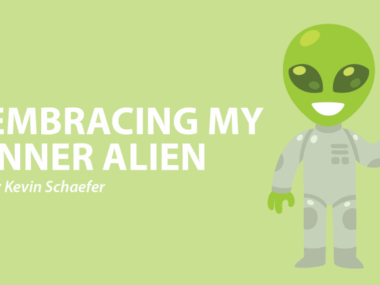Confessions of a Star Thief: The Paradox of Wishing Away Negative Aspects of SMA
Written by |

Some people with disabilities say they’ve never wished for different circumstances.
Well, I’m about to enter a black hole with you, in revelation of an honest confession: I’ve cast so many wishes into the night, I’ve nearly robbed the entire sky of stars.
Odds are, you’ll see my face plastered along the cosmic outposts of intergalactic travel as a wanted outlaw of looted stardust and fraudulent constellations.
It’s not only stars I’ve wished upon. Oh no, I didn’t stop there.
As a kid, I regularly caught side eye from bugs as I invaded their daily business and grassy dwellings while searching for four-leaf clovers. During my teen phase, I tossed so much copper into a fountain statue at the local mall, I likely donated enough revenue to keep their doors open until I left home for college. And to this day, I’m known to eagerly blow loose eyelashes off the tips of my fingers.
I can’t fess up to wishing for a different life or body altogether. I can’t envision myself without SMA. It’s all I’ve ever known. SMA is integral to who I’ve grown to become, and the ongoing evolution of myself.
But I’ve wished away moments of pain and recovery after surgeries. I’ve wished away ignorant people who’ve made me feel like an invasive alien life form. I’ve wished away transgressions from people who’ve coped with my disability more poorly than I ever did. I’ve wished away fatigue, lengthy extracurricular physical therapy, awkward gym class moments, uncooperative veins, leg casts and braces, forfeiture of my dignity during personal cares with strangers, and medication side effects.
Our lives are teeming with trials and triumphs. Disability and chronic disease are organically intertwined with the human life span. But I do often wish that life was more livable with SMA. I wish society supported navigation of disabled life in a more rewarding way.
In the process of obtaining a new wheelchair, I recently looked over the quote submitted to my insurance company by the medical supply company. Documentation from my medical record accompanied the purchase quote. Like a compound telescope, my eyes honed in on the repetitive use of the phrase “wheelchair-bound” in description of me.
I feel free and independent in my wheelchair. As much as I perceive the term wheelchair-bound to be a sunspot blemish in this supernova story of my life, it’s the gravity of Earth that I feel most strongly bound to.
Though I’m a dreamer and tend to frequent castles in the sky during my spare time, I’m not particularly knowledgeable about physics or the laws that govern our universe. In my college astronomy course, the only stargazing I charted involved staring into the piercing green eyes of my Grecian astronomy professor — instead of mastering concepts of parallaxes, planetary bodies, or moon phases, I spent more time studying how the lull of his accented words matched the lapping Mediterranean waters from which his hometown roots originated.
Being a dreamer, and a wisher, keeps my complacency in check. I’ve mentioned complacency in other columns, and it’s worth a mention here, too.
If I accept only what is and never think about what could be if I had more abilities than I do with SMA, then I wouldn’t have a yearning to discover ways to adaptively engage in all that I wish to do within this life of mine. Challenging the status quo helps me to see accessibility barriers that exist for more people than just myself, and to consider how talking about those barriers will chip away at demolition.
An apathetic culture of ableism might try to tell you why you shouldn’t accept your disability — your one unique and beautiful body — as it is. A passionate disability activist might try to educate you about the harm imposed by glorifying physical strength and optimum health.
But I’m all about balance. So, I’ll offer you a perspective that you can choose to cherish or crumple into trash: You are free to entertain both perspectives.
You can perceive your story as one of beauty and courage, and embrace your body in gratitude of the many joys it brings you, while nurturing the elements of despair — those fist-clenching, tear-jerking, flushed-cheek, head-hanging, garbage-dump moments when you simply wish your body would get its act together for you.
We are all human. With that condition comes emotion, and not all emotions are easy to process. In fact, most emotions require a great deal of effort to sort through. But pushing away emotions can result in more harm than good.
If wishing upon a star every now and again helps a person to see paradoxes, or recognize what they desire in life — and consider how to draw their own celestial map, how to spin uncharted galaxies within their personal universe — then I say wish away to your heart’s content.
***
Note: SMA News Today is strictly a news and information website about the disease. It does not provide medical advice, diagnosis, or treatment. This content is not intended to be a substitute for professional medical advice, diagnosis, or treatment. Always seek the advice of your physician or other qualified health provider with any questions you may have regarding a medical condition. Never disregard professional medical advice or delay in seeking it because of something you have read on this website. The opinions expressed in this column are not those of SMA News Today, or its parent company, Bionews, and are intended to spark discussion about issues pertaining to spinal muscular atrophy.







Leave a comment
Fill in the required fields to post. Your email address will not be published.